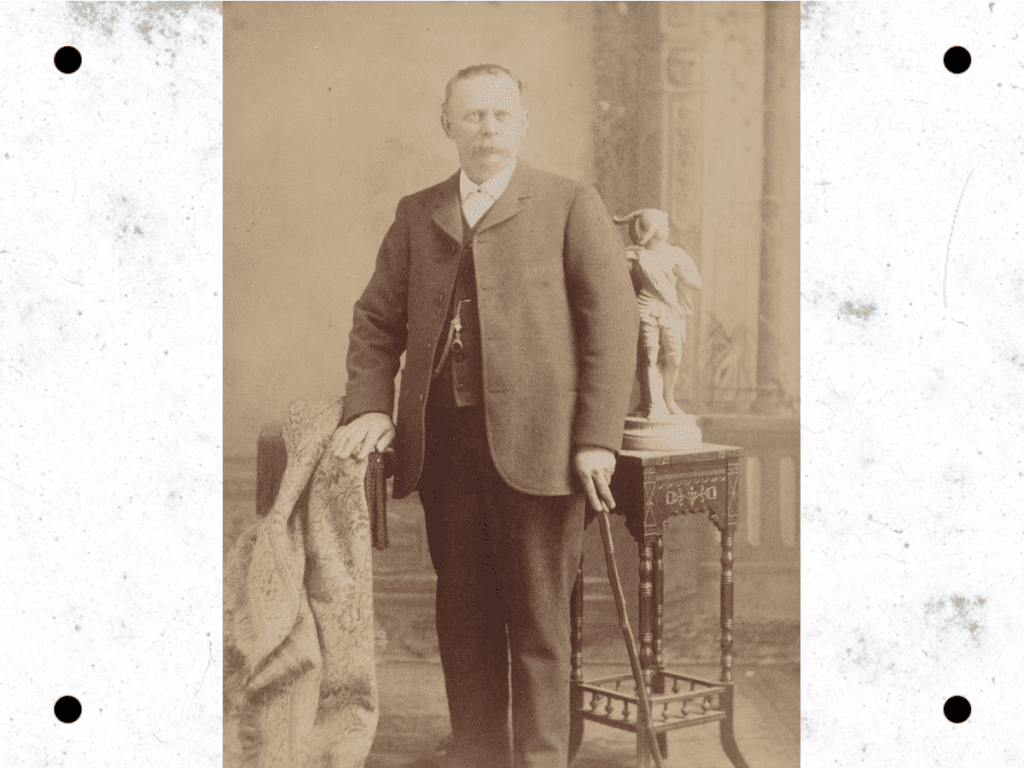Born in Pennsylvania in 1839, Philip Smith moved to Sidney when he was about twenty-one with $25 in his pocket, Philip moved to Sidney. After learning the molding trade in Dayton, he bought the ground where a foundry had burned, and with his brother Michael built a shop where the new partnership, P. Smith & Bro, flourished. The Smith brothers made all things metal, including metal wheel spokes and school bells.
Although a fire wiped out the promising enterprise in the 1860s and various business recessions had the firm teetering on the brink of failure, his foundry was turning out 8,000 bells and 4,000 sugar kettles a year by 1879. Over the next four decades, Mr. Smith, always the visionary, designed and manufactured such varied items as steam engines, fire escapes, metal building columns, grain handling equipment, washing machines, and cookware. Among other products were cast iron architectural elements; cornices, window hood molds and particularly storefronts. As one of the first Sidney manufacturers to establish trade outside Ohio, the Journal reported that his goods were being shipped “to Indiana and the West.”
It seemed that every time Smith met with success, a severe business recession or other calamity forced him to move in a different direction. But reverses never deterred him from launching his next venture. Fortunately, Philip was such a hustling, bustling bundle of hope incarnate with a magnetic personality that he many times found the means to secure the financial aid he needed to get the business back on track. True to his innovative nature, this frequently also meant new products.
Eventually, Philip bought his brother out. Often described as industrious, persevering, and highly mechanically skilled, Mr. Smith expanded his business until the plant became so important that it became a necessity to form a company, the Philip Smith Manufacturing Company, with a capitalization of $130,000. Partners L. M. Studevant and B.D. Heck were brought on board with Mr. Smith retaining the majority stock. The business was in the production of elevator machinery, and in the late 1800’s/early 1900’s eighty to one hundred men were employed. Simultaneously, Smith operated a spoke factory and a hollow ware factory, which he later sold to the Wagner Manufacturing Company. Philip actively managed the business until 1907, when he retired from the day-to-day rigors of manufacturing. Mr. Smith also discontinued the spoke factory as well.
Philip had hired L. M. Studevant to work for him as a bookkeeper, seeing something special in the young man. He mentored him into a very hard-working, successful financier and much later entrusted Studevant to become President of the Philip Smith Manufacturing Company upon Smith’s retirement.
Philip Smith was on the board of directors for many businesses in the area including the Sidney Tool Company, Sidney Manufacturing Company, Monarch Machine Company, Royal Manufacturing Com, Philip Smith Manufacturing Company, Sidney Telephone company. This man was the incarnation of the indestructible spirit of a visionary.
